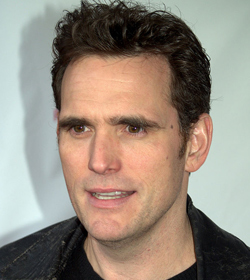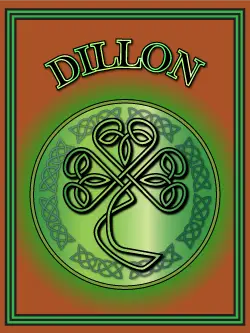Dillon is a well-known Irish surname but has origins in both England and France as well as Ireland.
It is not connected to the surname Dylan, which originated in Wales.
There are a number of variations to the name including Delion, Dillan, Dillen, Dilon and Dilune.
The motto on the Dillon coat of arms reads: ‘Dum spiro spero’ which translates to ‘While I breathe I hope.’
Descendent of the blind one
The name in Ireland originated in Co Westmeath. It is derived from the old Gaelic name O’Duilleain. The ‘O’ prefix to the name meant ‘grandson of’ or ‘descendent of’, while Duilleain meant ‘the blind one’. So the surname means ‘descendent of the blind one’.
People in Ireland during this period took their names from the leader of their clan, which was usually a warrior or a wise elder. Perhaps the clan leader was blind because he was either old or injured in battle.
The Dillons were an important family and owned so much land that Co Westmeath was known as ‘Dillon’s County’. They also spread out into Counties Meath and Roscommon.
Portlick Castle in Co Westmeath was built by the Dillons in the late 12th century. It is the only mediaeval castle in Ireland that has been in constant use since it was built.
Dillons in England
In England the name comes from the village of Dilwyn in Hertfordshire. Many people migrated from one village to another in order to find work. They would take their surname from the village they came from in order to differentiate themselves from people with the same personal name in their new village.
The name Dilwyn is derived from the pre 7th century word ‘diglum’ which meant ‘retreat’.
Dillons in France
In France the name may have come from the Germanic name ‘Dillo’ which meant ‘the destroyer’. It could also be a name for people from the city of Lyon or a nickname for a person with lion-like bravery.
It came to England in the 11th century during the Norman invasion. Just over a century later the Normans invaded Ireland.
Many French Dillons whose families had settled in Britain were part of the invasion of Ireland. Sir Henry de Leon arrived shortly after the Norman Invasion and acted as secretary to the Prince John. He was awarded large areas of land.
The name develops

The Irish, English and Norman people in Ireland with the surname Dillon all merged over the years as the foreign settlers integrated with the natives. After several generations the majority of them saw themselves as Irish, many even took the Irish O’Duilleain as their name.
In the 17th century the English took control of Ireland as Oliver Cromwell’s men brutally swept through the country. At this time Irish names became anglicised as English tax clerks would write down people’s names in spellings that were intuitive to them. This led to variations in the English spellings of the same surname because each person might have interpreted a spelling of a name slightly differently.
Many people also dropped their Gaelic prefixes in order to further anglicise their name. This was became it had become increasingly difficult for people with Irish sounding names to find work.
The name spread across the world
The name travelled across the world in the mid-19th century as over a million people emigrated Ireland to escape the potato famine. They headed to America, Canada, Britain and Australia in search of a better life.
They settled and had families in their new homes. Since then, Irish names such as Dillon have become common in all of these countries.
Famous Dillons
Matt Dillon is an American actor. He has appeared in several hit movies including Rumble Fish, The Outsiders, Drugstore Cowboy, There’s Something About Mary and The Art of The Steal.
Matt’s brother Kevin Dillon is also a successful actor. He has starred in the popular TV series Entourage as well as several acclaimed movies and TV shows such as Platoon and 24.
Melinda Dillon is an Oscar nominated American actress. She has starred in movies such as Bound for Glory, Close Encounters of the Third Kind, State of Emergency and Magnolia.
